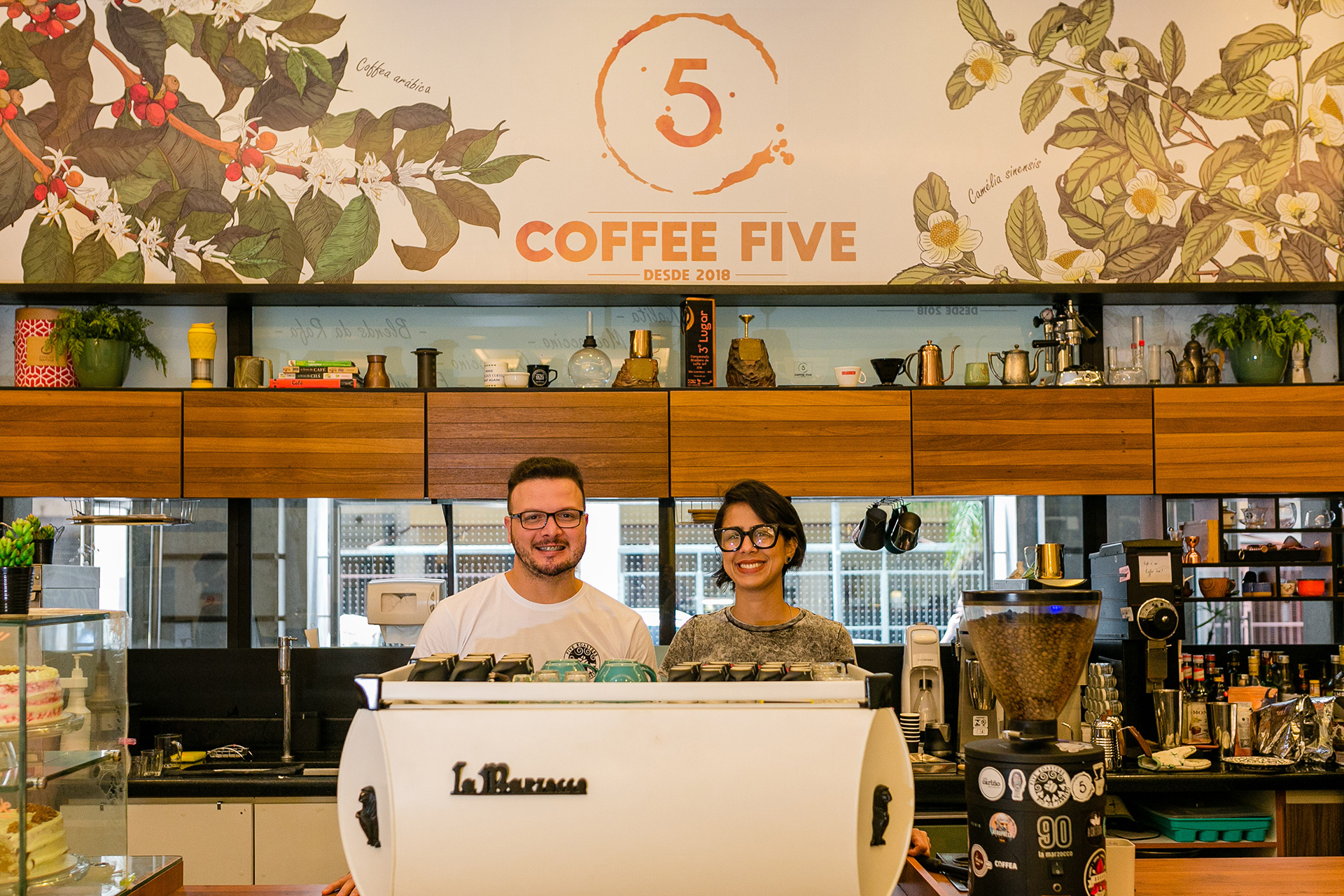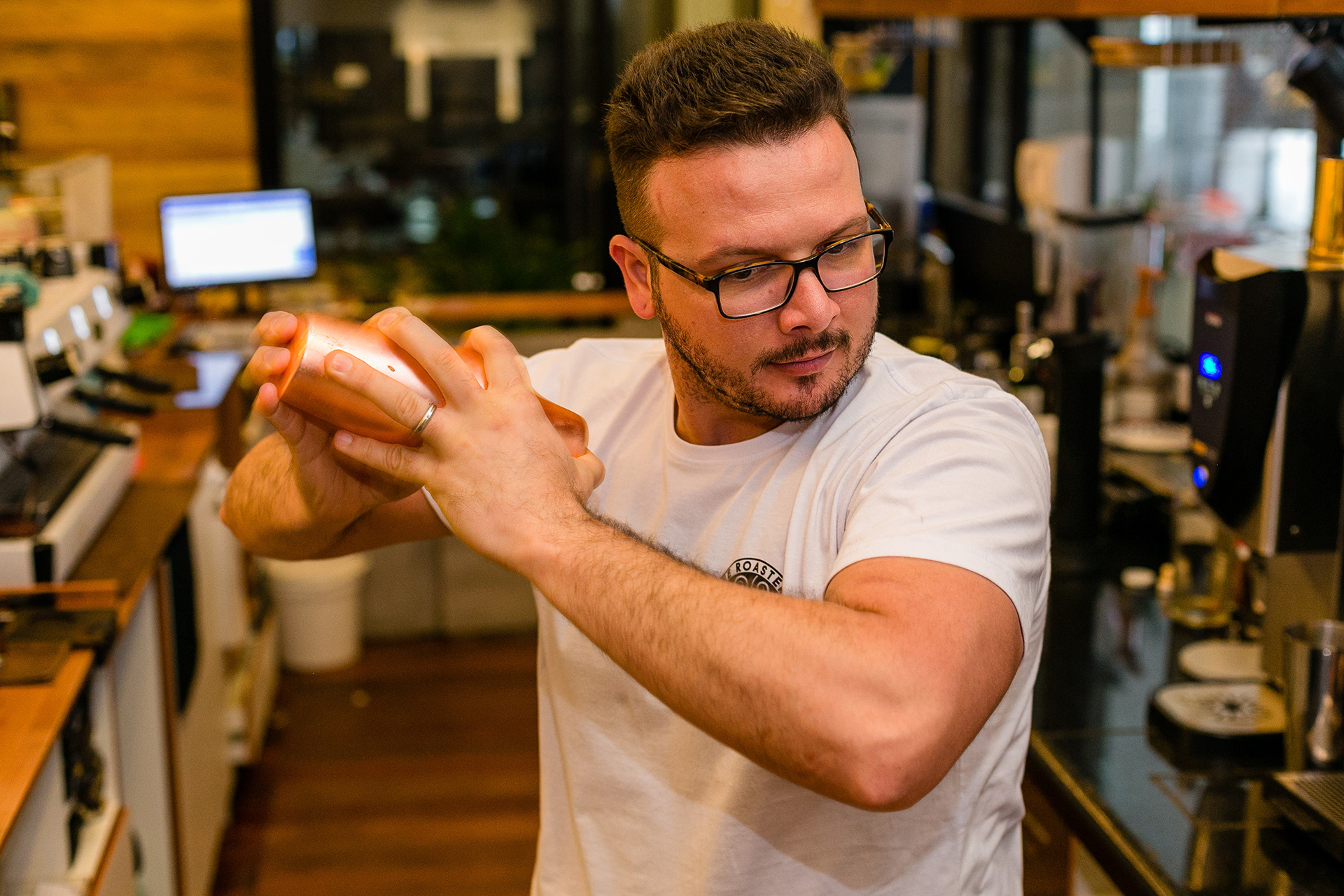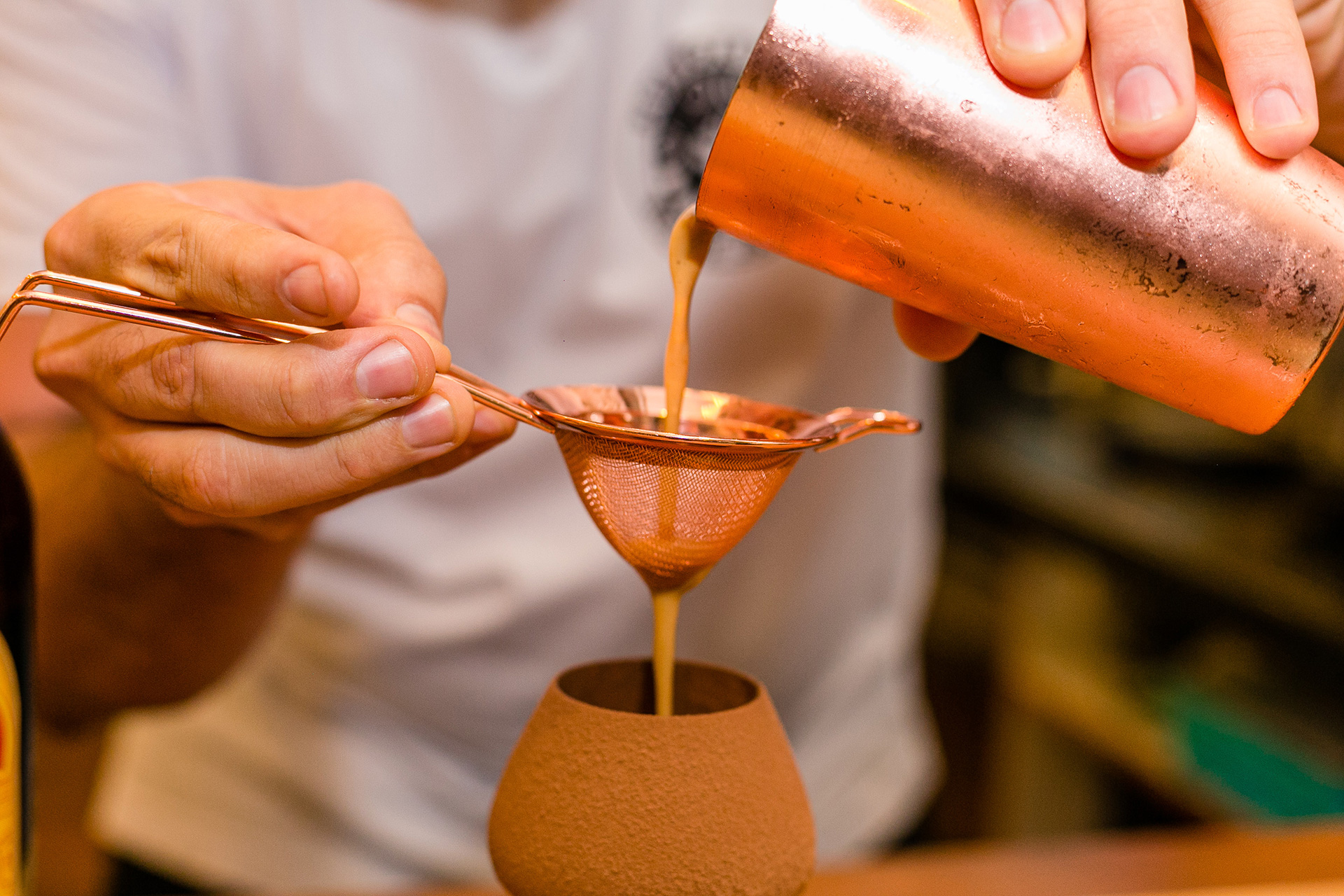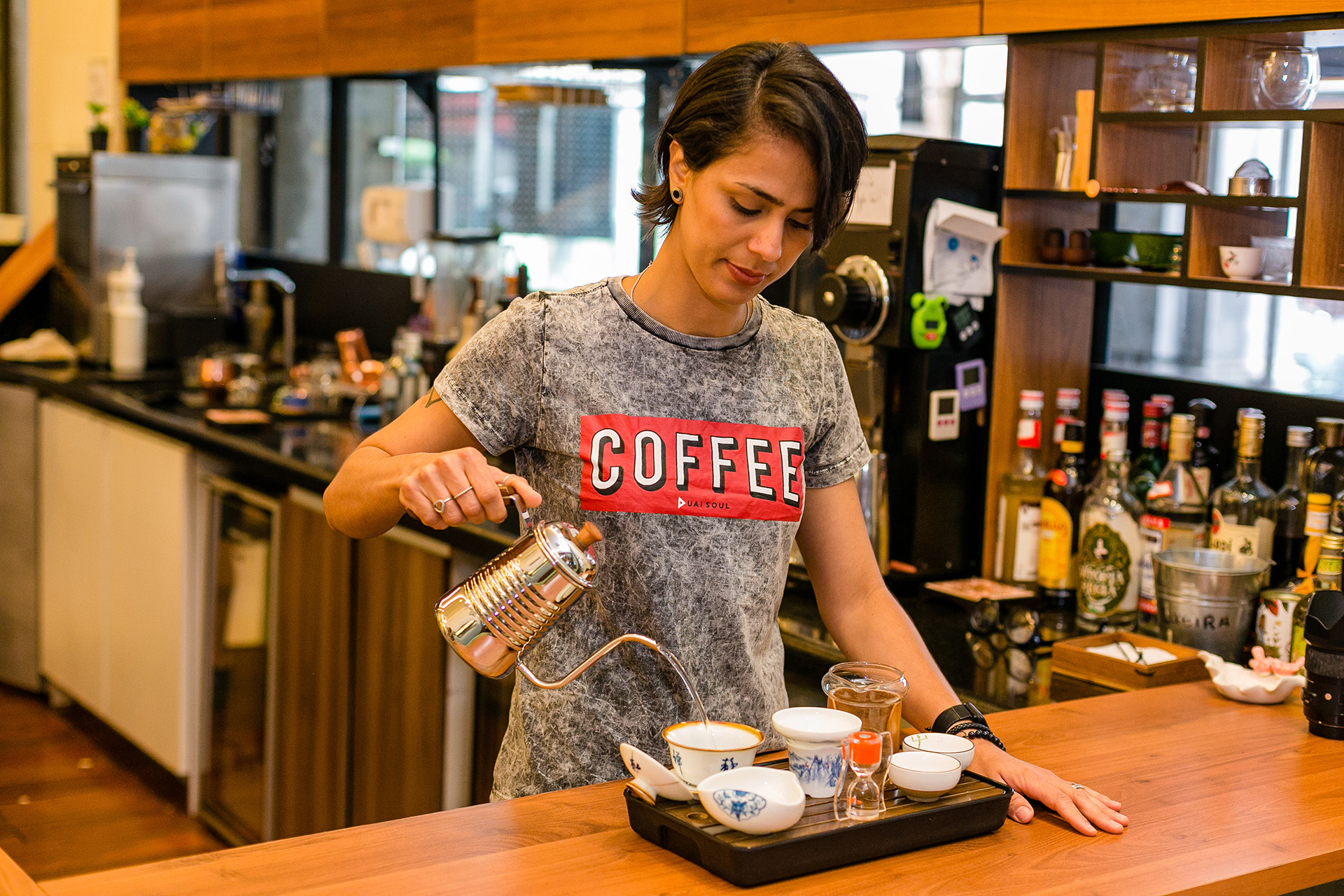
Every carioca (a native of Rio), knows what the drink carioca is when they enter a coffee shop. For those of us who aren’t cariocas: it’s a regular espresso, with an additional shot of hot water (usually around 25-30 milliliters). Some might call it a mini-Americano. At Coffee Five, a small coffee shop inside a shop gallery in the heart of downtown Rio, carioca orders have been less and less common. Regular espresso has been the preferred method, thanks to the hard work of Emerson and Rafaela Nascimento and their barista crew.
Nascimento is the proud son of Brazil’s Northeastern immigrants, having started his career in coffee when he was 16 years old thanks to a social program run by Emilio Rodrigues from Casa do Barista, a coffee-focused school based in Rio. Going through financial difficulties at the time, Nascimento saw coffee as an opportunity: after finishing the barista course he started working as an espresso machine technician during the week and kept working as a bartender—his previous occupation—during the weekends, to make ends meet.

After six years working as a barista instructor, coffee sales rep, and machine technician, Emerson Nascimento got tired and wanted to work solely as a barista. He got his break at Curto Café where he not only worked as a barista but managed to become one of the partners. After four years at Curto, the opportunity to open his own shop with his wife Rafaela came, and after much resistance—especially from Rafaela—they decided to embrace it.
In the meantime, Nascimento also spent time working as a La Marzocco representative, barista, roaster, barista/latte art/coffee drinks instructor, and consultant for new businesses in Brazil and abroad. A former graffiti artist, he stands out at latte art, and many people mistakenly believe he is the Brazilian champion. Nascimento is actually a Coffee in Good Spirits champion (2017 and 2019), owing those awards to his background in bartending.
Currently, when he has any time in between his many work trips, he goes to his own coffee shop, where he prefers to be behind the counter, serving and chatting with customers all day long. Coffee Five opened in 2018, and since then has been building a large customer following in downtown Rio; Nascimento tells me they are selling an average of 440 pounds of coffee a month, opening from Monday to Friday only, which is a large amount for a small shop in Brazil.

Their peak hour is at lunchtime, when folks from the nearby offices go for their regular post-lunch espresso and chatter. If you have time, go in the afternoon, sit at the counter, and order both an espresso and a pour-over—for the latter, they always have a guest coffee, usually from another country. Coffee is very reasonably priced when compared to other coffee shops in Rio. Nascimento explains that this is possible because he now roasts his own coffee with two other partners.
“Make no mistake. Coffee Five is wonderful and is making a profit, but it doesn’t pay all of my bills. If I were to stay working full-time there, I’d have to let someone go. I make much more money giving trainings and consultancies. But, you know, it pays Rafaela’s salary and we are slowly growing. Plus, we are starting our wholesale accounts business with my roasting partners. We are very down-to-earth when it comes to money, having gone through what we have in the past, so we’ll never take too big of a step without overanalyzing it first,” explains Nascimento.

Rafaela Nascimento
The tea service is something else at Coffee Five too: Rafaela Nascimento happens to be a tea specialist, and there are some customers that only come to Coffee Five for tea. Brazilians are still getting used to drinking tea, and when Rafaela serves one of the tea blends, customers are blown away by the flavor. “The feedback is in the same line of someone trying our coffees for the first time,” explains Nascimento. “We are a specialty coffee and tea shop,” she emphasizes.
Juliana Ganan is a Brazilian coffee professional and journalist. Read more Juliana Ganan on Sprudge.

